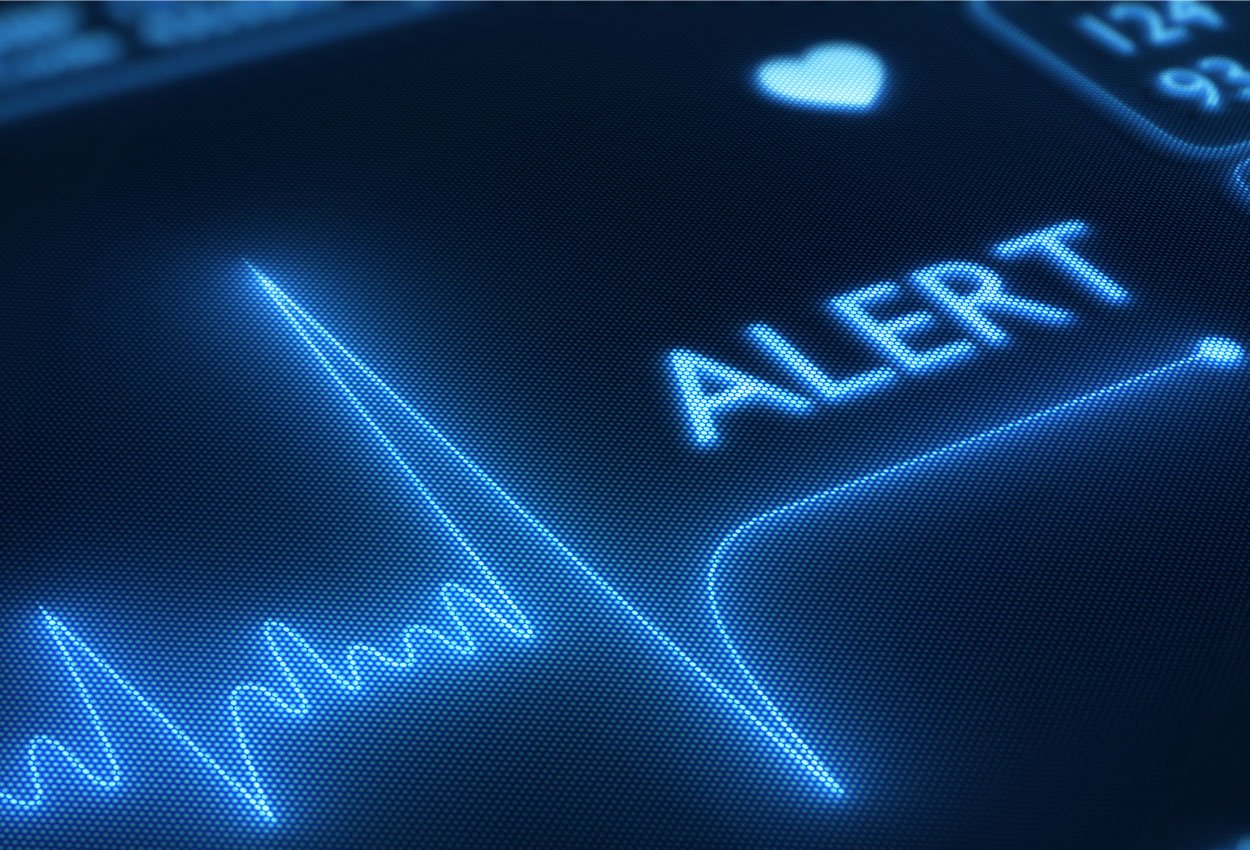
The problem with pandemics is that other diseases don't take a back seat to it or go away. Sadly this fact is coming to light as the medical community estimates that anywhere from one-third to one-half of the 87,000 excess deaths in the U.S. seen in March and April of 2020 were from causes other than COVID-19. Excess deaths are defined here as more deaths than expected in a normal two-month period.
In large part, the excess deaths were attributed to the shutdown of diagnostic and other non-emergent/non-COVID services and patients not seeking care during the height of the pandemic.
Experts see a new public health crisis looming
Research suggests that many Americans are shunning hospitals and doctors’ offices, often out of fear of catching the coronavirus, rather than seeking care for illnesses such as cancer, diabetes, hypertension, depression, or even emergencies such as heart attacks and strokes.
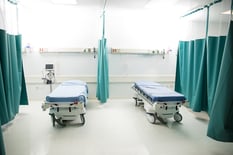 An analysis report published by the Centers for Disease Control and Prevention (CDC), showed that emergency department visits from March through May dropped 23% for heart attacks, 20% for strokes, and 10% for uncontrolled blood sugar.
An analysis report published by the Centers for Disease Control and Prevention (CDC), showed that emergency department visits from March through May dropped 23% for heart attacks, 20% for strokes, and 10% for uncontrolled blood sugar.
In late April and early May, most states allowed non-urgent and elective procedures to resume, but many people continue to stay away from medical care.
This is causing what one expert calls a “tsunami” of illness that has yet to make its full extent known.
"Cancer does not pause"
During the first peak of the COVID-19 pandemic, the number of new diagnoses for six types of cancer decreased by almost 50% in the United Sates alone (breast, lung, colorectal, gastric, esophageal, and pancreatic).
These results are consistent with declines reported from other countries during the same period and offer highly suggestive evidence that that patients are delaying routine and diagnostic care. This could have major complications for cancer treatment and outcomes when these patients finally do seek care.
According to his speech at the American Association for Cancer Research (AACR) virtual meeting on July 20, Dr. Anthony Fauci, Director of the National Institute of Allergy and Infectious Diseases (NIH), hypothesized that the drop-off in cancer screenings due to the pandemic could result in an estimated 10,000 additional deaths from breast and colorectal cancers alone over the next decade.
Dr. Thomas Marron, an oncologist at Mount Sinai Hospital, assistant professor at the Icahn School of Medicine at Mount Sinai in New York City, and medical reviewer for Everyday Health, expressed concern about the decrease in patients in his cancer clinics, worrying that patients will wait to see a doctor until they get to the point where they can’t ignore their symptoms anymore and they find out they have very advanced cancer.
Cancer treatment, however, did pause
For cancer patients already undergoing treatment, the shut-down of non-emergent/non-COVID care caused additional stress and grave concern regarding their chances of survival.
According to a Brief Report published in JAMA Network™ online, disruptions to their care during shutdown left cancer patents feeling abandoned, angry, and dismissed as unimportant.
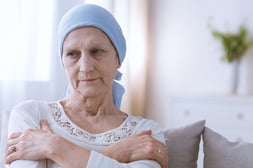 Here are some excerpts from the report:
Here are some excerpts from the report:
- Regarding delays in cancer screening, patients were worried about the late discovery of a new malignant neoplasm (“What if my cancer comes back and by the time I do get screened it’s too late?”).
- Regarding diagnostic workup delays, patients weighed the seriousness of cancer against COVID-19 (“Why is COVID considered more critical than cancer?”).
- When asked about delaying the initiation of treatment, patients had strong emotions, stating, (“Why am I being punished when I followed directions and made sure to self-isolate?").
- In situations in which patients may be offered nonstandard treatment, patients noted feeling unimportant (“You’re making me feel that my care and health aren’t important to you.”).
- Regarding the necessity of treatment breaks, patients raised the likelihood of bad outcomes (“This sounds like a death sentence.”).
- Regarding delaying follow-up imaging or care, patients expressed feelings of abandonment (“You’re leaving me to deal with this alone.”).
Delays in treatment also harmed cardiac patients
The article, "The Untold Toll — The Pandemic’s Effects on Patients without Covid-19," touches on the more immediate consequences of foregoing treatment for cardiac events. Already, the U.S. has seen the heart attack death rate more than double since the onset of the pandemic.
In the article, Dr. Brian Kolski, Director of the Structural Heart Disease Program at St. Joseph Hospital in Orange County, California, is quoted as saying, “A lot of procedures deemed ‘elective’ are not necessarily elective.”
He goes on to relate the story of two patients in his practice whose transthoracic aortic valvular replacements were postponed due to COVID restrictions and who died while waiting.
“These patients can’t wait two months, some of them can’t wait two weeks. What has been the actual toll on some of these patients?”
"Don't Die of Doubt"
Dr. Mitchell Elkind, President of the American Heart Association (AHA) echoes that concern over delayed care, stating that the danger of delayed treatment is two-fold. While there is an increased risk death, those who survive end up facing a diminished quality of life.
"The longer the lack of blood flow to the heart and the brain, the more damage there will be. Some studies have suggested that during the pandemic some people who do show up for care are sicker, suggesting they waited too long. You want to take care of the problem as quickly as possible. There's no question the risk of untreated heart attack or stroke is higher than the risk of COVID-19. We have to get that message through."
The AHA's "Don't Die of Doubt" campaign is one way they are trying to get that message through, hoping to encourage anyone experiencing any kind of cardiac event to seek immediate medical care.
Depression, Suicide, Domestic Abuse
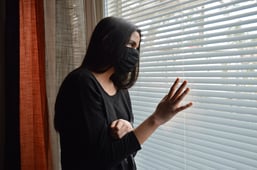 The socio-economic impact of shutdowns and quarantines, while helpful in flattening the curve of infection, has also taken its toll in collateral damage.
The socio-economic impact of shutdowns and quarantines, while helpful in flattening the curve of infection, has also taken its toll in collateral damage.
Forced separation from family, friends, and community; economic stress from forced unemployment, and inaccessibility to non-emergent healthcare providers and other safety nets have resulted in an upswing in overdoses, suicides, and more cases of physical abuse resulting in severe injury.
Mental health experts fear the pandemic is putting more people at risk for depression and suicide the longer it goes on and advocates for victims of physical abuse fear that extended lock downs are putting more victims, primarily women and children, at risk of extreme physical harm at the hands of their abusers.
Stop Medical Distancing
As of this writing, we are at least six months into a lifestyle focused on social distancing and self-isolation.
Although we are gradually, and intermittently, reopening the country, the question has to be asked - is the focus on containing the spread of COVID-19 putting others at unnecessary risk of dying as collateral damage?
We are already seeing the downside of delayed care in lives lost, many unnecessarily, as collateral damage in the attempts to flatten the curve.
So how can we better balance the message and ensure access to care during future spikes so that patients feel safe seeking medical care?
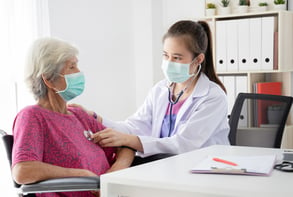 A consortium of healthcare organizations, medical facilities, and medical companies have responded by launching a public awareness campaign called Stop Medical Distancing.
A consortium of healthcare organizations, medical facilities, and medical companies have responded by launching a public awareness campaign called Stop Medical Distancing.
Its goal is to educate the public about the measures being taken to reduce their risk of exposure to COVID-19 while protecting their total health when they go for regular screenings and checkups, or continue with established care plans - and most importantly to stop delaying medical care.
Related articles:

Mary Lang Pelton
Director of Marketing Communications
